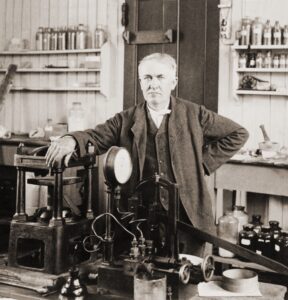“Yes, space is hard, but we are only just getting started.”
Melissa Thorpe – Head of Space Port Cornwall
The UK was about to make history last month with its first ever space launch.
The mission was set to be a huge step forward for the UK space industry and the beginning of a new era. It was not like the traditional launch that we more often see from a vertical launchpad, but from underneath the wing of a modified 747 – a practice known as a horizontal launch.
After successfully taking off from the recently transformed runway at Spaceport Cornwall –– Virgin Orbit’s specialised 747, (Cosmic Girl) carrying the launcher system (LauncherOne), released the rocket.
The rocket’s engines promptly ignited, before going hypersonic and successfully reaching space. The flight continued, succeeding in the separation and ignition of the second stage.
However, at some point during the firing of the rocket’s second stage engine, the system experienced an ‘anomaly’, abruptly ending the mission – and with it, the initial enthusiasm of the launch team.
In short, the rocket did not achieve the required orbit to deploy its payload of 9 satellites.
Positive Gains
Understandably, the project team members were very disappointed, despite being aware of the risk of failure for any rocket launch. Nevertheless, to have invested so much time, hard work and effort into the project must have been particularly galling.
The team however should take much pride in the many things that obviously did go right to bring the rocket to the launch phase and make it to space – a UK first.
They will have managed and learned from many levels of complexity to get to this point and made significant technical gains in the pursuit of their objective.
The mission has also done a great deal to enhance the reputation and profile of the UK Space Program. In addition to the 2,000 people watching at the Spaceport, the official livestream of the event peaked at 75,000 viewers – and 142,000 enthusiasts helped make ‘Cosmic Girl’ the most-tracked aircraft on Flightradar24.
The project also brought together new partnerships and integrated collaboration from a wide range of partners, including the UK Space Agency, the Royal Air Force, the Civil Aviation Authority, the US Federal Aviation Administration, and the National Reconnaissance Office.
So, in many respects, the mission was a success.
If at first you don’t succeed…..

We all experience failure at some point throughout our lives. Even those intrepid pioneers of aviation the Wright Brothers never let the occasional crash set them back! They would simply take what they learned to make the prototype more effective.
It’s not difficult to find examples of notable successes stemming from failure.
Henry Ford went bankrupt before starting the Ford Motor Company and Thomas Edison tested thousands of failed materials before creating his carbon filament lightbulb. Even J.K Rowling received 12 rejections before the first Harry Potter book was published!
Those are just a few examples and I’m sure you will have your own anecdotes of when failure eventually turned into success. But what all those great inventors, writers and pioneers have in common, apart from their innovative and creative flair is fortitude, determination – and grit.
….try and try again!
The UK Space Launch team will of course be well-versed in the process of trial and error and they along with other innovators and pioneers are naturally more likely to persevere in the face of failure.
The project team associated with the launch will no doubt be working to establish the cause of the failure and taking the corrective actions necessary to enable future successful launches.
We all want to be successful in what we do and the more immediate that success, the better, right? If only life was that simple, but anything worth achieving is often never that straight forward.
The message here is not to excuse, embrace or advocate for failure, but to acknowledge it as an important step in the pursuit of progress and ultimately, to help make the world a better place.

